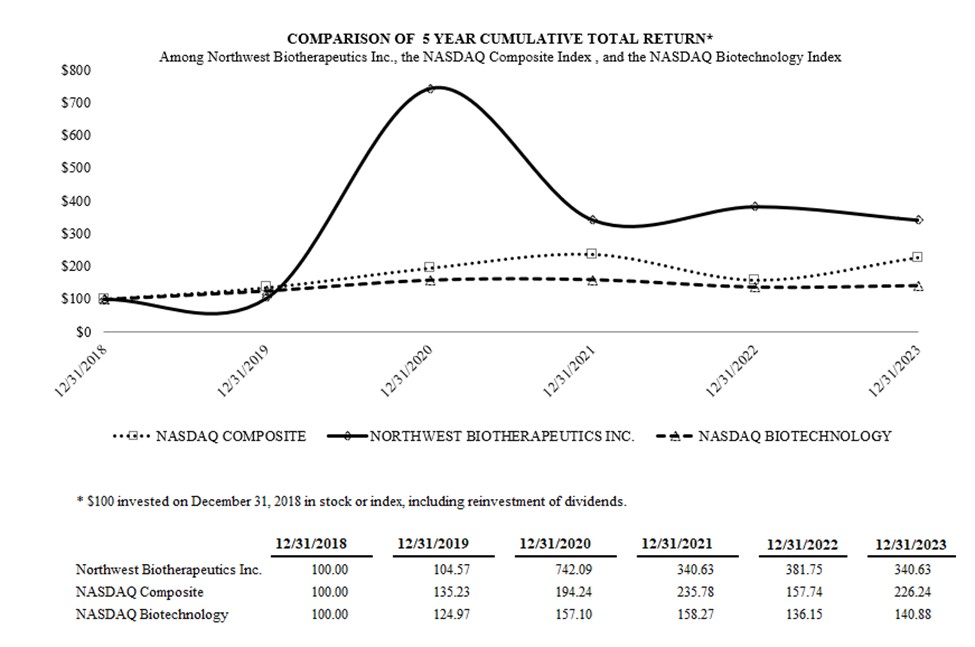recoverability and classification of assets, or the amounts and classification of liabilities that may result if we do not continue as a going concern. Therefore, you should not rely on our consolidated balance sheet as an indication of the amount of proceeds that would be available to satisfy claims of creditors, and potentially be available for distribution to stockholders, in the event of liquidation.
Maintaining a strong control environment, free of material weaknesses, is dependent on our ability to retain an adequate number of qualified personnel and/or consultants to perform such control activities and other factors. Our management and our independent auditors have identified one material weakness for the year ended December 31, 2023.
We have remediated past material weaknesses and we pursue ongoing efforts to strengthen our internal controls. Maintaining a consistently strong control environment requires the ability to attract and retain sufficient qualified personnel and/or consultants and other factors. We may not be able to attract or retain sufficient numbers of qualified personnel. In connection with the preparation of our financial statements for the year ended December 31, 2023, our management and our independent auditor identified a material weakness, which involved applying an incorrect valuation method using the market price actually paid for certain convertible notes rather than a Monte Carlo formula, as described more fully in “Item 9A. Controls and Procedures” of Part I of this Form 10-K.
If we do not successfully maintain a strong controlled environment this could lead to heightened risk for financial reporting mistakes and irregularities, and/or lead to a loss of public confidence in our internal controls that could have a negative effect on the market price of our common stock. In addition, our ability to retain or attract qualified individuals to serve on our Board and to take on key management or other roles within our Company is uncertain.
As a company with a novel technology and unproven business strategy, an evaluation of our business and prospects is difficult.
We are still in the process of developing our product candidates through clinical trials. Our technology is novel and involves mobilizing the immune system to fight a patient’s cancer. Immune therapies have been pursued by many parties for decades, and have experienced many failures. In addition, our technology involves personalized treatment products, a new approach to medical products that involves new product economics and business strategies, which have not yet been shown to be commercially feasible or successful. We have not yet gone through scale-up of our operations to commercial scale. The novelty of our technology, product economics, and business strategy, and the limited scale of our operations to date, makes it difficult to assess our prospects for generating revenues commercially in the future.
We will need to expand our management and technical personnel as our operations progress, and we may not be able to recruit such additional personnel and/or retain existing personnel.
As of December 31, 2023, we had a total of 25 full-time employees: 23 full-time employees in the US, one full-time employee in Europe and one full-time employee in Canada. Of this group, only four employees are considered Management. Additional personnel are retained on a consulting or contractor basis. Many biotech companies would typically have a larger number of employees by the time they reach late-stage clinical trials. Such trials and other programs require extensive management capabilities, activities and skill sets, including scientific, medical, regulatory (for FDA and foreign regulatory counterparts), manufacturing, distribution and logistics, site management, reimbursement, business, financial, legal, public relations outreach to both the patient community and physician community, intellectual property, administrative, regulatory (SEC), investor relations and other resources.
In order to fully perform all these diverse functions, at many sites across the U.S. and in Europe, we may need to expand our management, technical and other personnel. However, with respect to management and technical personal, the pool of such personnel with expertise and experience with living cell products, such as our DCVax immune cell product, is very limited. In addition, we are a small company with limited resources, our business prospects are uncertain and our stock price is volatile. For some or all of such reasons, we may not be able to recruit all the management, technical and other personnel we need, and/or we may not be able to retain all of our existing personnel. In such event, we may have to continue our operations with a small team of personnel, and our business and financial results may suffer.
We rely at present on third-party contract manufacturers. As a result, we may be at risk for issues with manufacturing agreements, capacity limitations and/or supply disruptions, and/or issues with product equivalency.
We rely upon specialized contract manufacturers, operating in specialized GMP (clean room) manufacturing facilities, to produce all of our DCVax products. We have worked with several such manufacturers, in several different locations, during various periods of our
